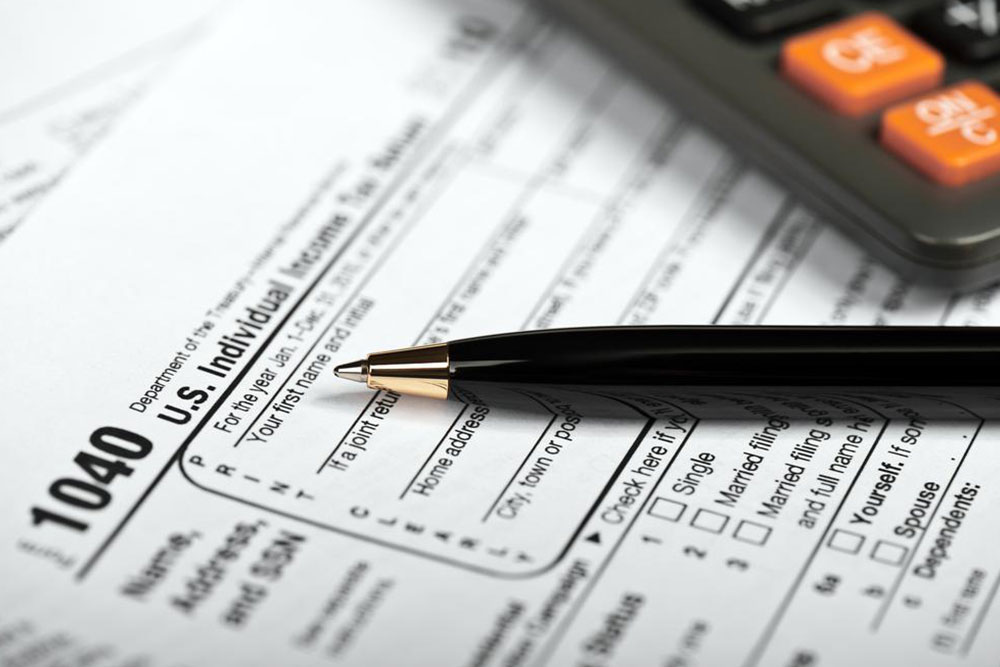The Top 10 U.S. States with the Most Favorable Tax Environment for Residents
Explore the United States' top 10 states with the lowest tax burdens, showcasing their unique tax policies, benefits, and why they are ideal for residents seeking financial relief. Learn how these states combine low income, property, and sales taxes to provide a more affordable living environment, perfect for families, retirees, and entrepreneurs.

Discover the U.S. States with the Lowest Tax Burdens and Their Benefits
Tax policies vary significantly across the United States, impacting residents' financial well-being and quality of life. While federal taxes are uniform nationwide, individual state taxes can differ dramatically—from states with minimal tax obligations to those with more substantial tax burdens. For individuals and families planning to relocate or invest in a particular state, understanding these differences is essential. Choosing a state with a favorable tax environment can lead to substantial savings, reduced financial stress, and increased disposable income.
In this comprehensive guide, we’ll explore the top 10 states with the lowest tax burdens, highlighting their specific tax policies and what makes them attractive options for residents seeking a more tax-friendly living environment.
Wyoming: Wyoming consistently ranks as one of the most tax-friendly states in the U.S. It features no state income tax, which means residents don’t pay any taxes on personal earnings. Additionally, Wyoming boasts some of the lowest gas taxes across the country, making fuel costs more affordable for drivers. The state’s property tax rates are also remarkably low, further reducing the overall tax burden on homeowners. Notably, Wyoming has the lowest beer taxes nationwide, an attractive feature for residents who enjoy social activities. The combination of these fiscal policies makes Wyoming an ideal choice for retirees, entrepreneurs, and families looking to maximize their income and savings.
Alaska: Alaska stands out with a unique tax system that completely exempts residents from state income and gas taxes. The state’s sales tax is minimal, averaging just 1.76%, which significantly lowers the cost of goods and services. Moreover, Alaska provides an annual Permanent Dividend Fund payout to residents, derived from the state’s oil revenues. This dividend serves as a direct financial benefit, helping offset living costs and further enhancing the state's appeal as a low-tax state. Alaska’s remote location and natural beauty make it especially attractive to those seeking a peaceful, financially manageable lifestyle amidst stunning wilderness.
South Dakota: South Dakota offers an extremely favorable tax climate with no state income tax. Its sales tax rates are relatively low, and the state exempts prescription medications from sales tax, reducing healthcare-related expenses. South Dakota also has competitive property taxes, making it an attractive destination for homeowners and retirees alike. The absence of income tax combined with reasonable sales and property taxes provides residents with more disposable income, making South Dakota one of the most financially advantageous states to live in.
Florida: Known as a popular destination for retirees and vacationers, Florida boasts no state income tax, which means residents keep more of their earnings. Property taxes are relatively low, averaging around $1,700 annually, which benefits homeowners. Additionally, Florida’s sales tax exempts essential commodities such as groceries and medicines, easing everyday living costs. The state’s tax policies not only attract new residents but also encourage business investments, contributing to a thriving economy with favorable fiscal conditions for families, seniors, and entrepreneurs alike.
Nevada: Nevada’s tax landscape is designed to be highly appealing. The state has no personal income tax, which allows residents to retain their full earnings. Its property taxes are among the lowest in the country, approximately $1,500 on average. Gas taxes are minimal, at just 34 cents per gallon, and essential items such as food and medicines are exempt from sales taxes, reducing daily expenses. Nevada’s business-friendly environment coupled with these low tax policies makes it a prime option for individuals seeking both economic efficiency and a proactive lifestyle.
North Dakota: North Dakota’s tax structure is evolving to benefit residents further. State income tax rates are currently decreasing and now stand at 1.10% for earnings under $100,000, making it highly competitive. The state provides favorable tax treatment for farm machinery and equipment, which supports agricultural industries. Moreover, food and medicines are exempted from sales tax, alleviating costs for essential goods. North Dakota’s balanced approach to taxation promotes economic growth while ensuring residents enjoy a manageable tax burden.
Delaware: Delaware presents a unique tax environment with no sales tax, making everyday shopping more affordable. Gas taxes are low, and property taxes are kept in check, appealing to homeowners and entrepreneurs alike. Despite having relatively higher income taxes, the overall low sales and property taxes mean residents often find this state financially advantageous. Delaware’s business-friendly policies and strategic location on the East Coast also make it appealing for corporate activities and residential living.
Arizona: Arizona’s tax policies favor middle-income residents. Individuals earning below $152,000 annually are exempt from paying state income tax. The state’s overall property taxes are low, averaging around $1,356, which benefits homeowners. Gas taxes are also modest at 19 cents per gallon, helping to keep transportation costs manageable. Arizona’s climate, combined with its tax advantages, makes it an attractive state for retirees, families, and young professionals seeking affordable living costs.
Louisiana: Louisiana offers a balanced tax approach, with lower property and gas taxes compared to many states. The state has a progressive income tax system with rates reaching up to 6% for income over $50,000, but the overall tax burden remains moderate due to lower property and gas taxes. This combination makes Louisiana appealing for residents who want a diverse cultural experience without the heavy tax load of some neighboring states. Additionally, Louisiana’s vibrant culture, rich cuisine, and affordable housing contribute to its attractiveness as a place to live and work.
Mississippi: Mississippi rounds out the list with particularly low gas taxes, just 19 cents per gallon, helping residents save on transportation costs. Property taxes are also among the lowest in the nation, averaging around $813 annually. The state’s income tax system is under review, with ongoing proposals to reduce rates further, aiming to enhance its attractiveness for both individuals and businesses. Mississippi’s cost of living remains low, making it a compelling choice for retirees, families, and entrepreneurs seeking an affordable lifestyle coupled with friendly fiscal policies.
Overall, these states exemplify diverse strategies for maintaining low tax burdens while fostering vibrant communities. They often combine minimal income, property, and sales taxes with additional benefits such as dividend payouts or exemptions on essential goods. When considering relocation or investment, understanding these tax environments helps individuals make informed decisions to optimize their financial health and quality of life across different regions of the United States.




